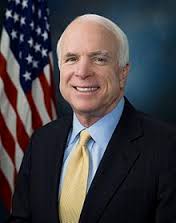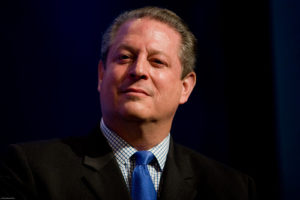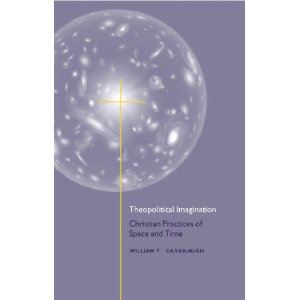No, this is not a post about long-suffering Cubs fans, who may not be suffering much longer. That would be a fun blog post, though.
This post is about political losers. You see, my favorite part of the election season is listening to the loser on election day.
Seriously.
After months and months of campaigning in which candidates tear each other up, declare that the country will completely collapse if the other gets elected, and paint one another with half-truths and misinformation, we finally get to election day. One of them wins. And the other loses.
Then comes my favorite part: the concession speech.
We have this custom in American democracy: when it is apparent who has won, the loser of an election calls up the winner, has a brief conversation, and then gives a speech.
And what happens in that speech, after all those months of bitter fighting?
Well, consider these excerpts from the concession speeches of our last four presidential losers:
Mitt Romney’s concession speech, 2012:
“I have just called President Obama to congratulate him on his victory…His supporters and his campaign also deserve congratulations. I wish all of them well, but particularly the president, the first lady and their daughters….This is a time of great challenges for America, and I pray that the president will be successful in guiding our nation…..”
John McCain’s concession speech, 2008:
“A little while ago, I had the honor of calling Sen. Barack Obama — to congratulate him on being elected the next president of the country that we both love…..In a contest as long and difficult as this campaign has been, his success alone commands my respect for his ability and perseverance. But that he managed to do so by inspiring the hopes of so many millions of Americans, who had once wrongly believed that they had little at stake or little influence in the election of an American president, is something I deeply admire and commend him for achieving.”
John Kerry’s concession speech, 2004:
“I spoke to President Bush and I offered him and Laura our congratulations on their victory.
We had a good conversation, and we talked about the danger of division in our country and the need — the desperate need for unity, for finding the common ground, coming together.”
Al Gore, concession speech on December 13, 2000 (after more than a month of electoral controversy):
“Just moments ago, I spoke with George W. Bush and congratulated him on becoming the 43rd president of the United States….I offered to meet with him as soon as possible so that we can start to heal the divisions of the campaign and the contest through which we’ve just passed…I know that many of my supporters are disappointed. I am too. But our disappointment must be overcome by our love of country…And while there will be time enough to debate our continuing differences, now is the time to recognize that that which unites us is greater than that which divides us….”
Two Republicans and two Democrats.
Embedded in their statements are these elements, found in many concession speeches:
1) They congratulate the winner.
2) They indicate that both sides need to work for the good of the country.
3) They mention, or imply, that the system of democracy is more important than their election victory or their political party.
In other words, the concession speech is where we most clearly get politicians articulating elements of the loyal opposition. And as I have argued, the concept of the loyal opposition is critically important for a healthy democracy.
John McCain’s 2008 speech (which is when I first fell in love with concession speeches) and Al Gore’s 2000 speech are particularly good. They are worth reading in their entirety and they are not long.
In fact, as I looked these speeches up, (and I could have gone back further in history, but, well, it’s a blog) I gained a level of respect for Al Gore that I did not have before. I have indicated how many other societies might react to a disputed presidential election like ours in 2000. Al Gore, however, wonderfully articulated the fundamental principles behind the rule of law, democracy and the loyal opposition. Consider these other parts of his speech:
“But in one of God’s unforeseen paths, this belatedly broken impasse can point us all to a new common ground, for its very closeness can serve to remind us that we are one people with a shared history and a shared destiny. Indeed, that history gives us many examples of contests as hotly debated, as fiercely fought, with their own challenges to the popular will. Other disputes have dragged on for weeks before reaching resolution. And each time, both the victor and the vanquished have accepted the result peacefully and in a spirit of reconciliation…..While we yet hold and do not yield our opposing beliefs, there is a higher duty than the one we owe to political party. This is America and we put country before party; we will stand together behind our new president.”
These are great points.
(OK, Gore overlooked the 1860 election when the victor and the vanquished both took up arms and five years later we looked around stunned that we had killed 750,000 of our own people).
Still, almost every time in American history both the victor and vanquished have accepted the results peacefully and in a spirit of reconciliation.
I do hope that whoever loses this year’s presidential race will give a concession speech with these elements in it. It is not guaranteed, for there is such a thing as a bad loser. And some people lose sight of, or don’t understand the importance of these fundamental principles. Given the very nasty and bitter comments from both sides in the second debate, I have to confess that I’m not entirely sure either Trump or Clinton would do this.
Still, the final question of the debate on Sunday night, which came from an undecided voter named Karl Becker, got at this issue. Becker has become something of a folk hero, which shows that many Americans long for a more civil and respectful campaign as we debate our differences. He asked this: “Would either of you name one positive thing that you respect in one another?”
Both Clinton and Trump actually said something positive about each in other.
So there is hope for this year’s concession speech.





